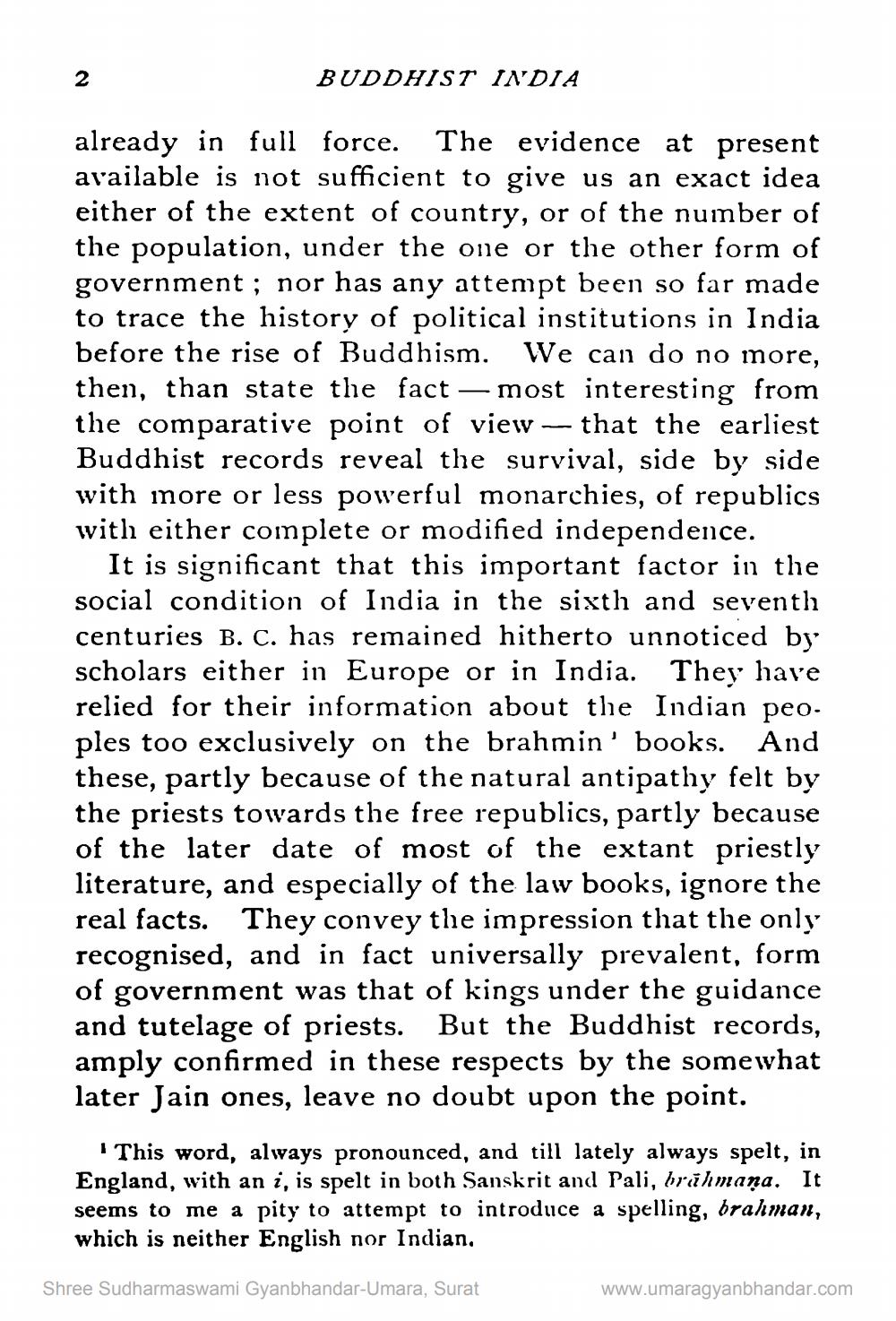________________
2
BUDDHIST INDIA
already in full force. The evidence at present available is not sufficient to give us an exact idea either of the extent of country, or of the number of the population, under the one or the other form of government; nor has any attempt been so far made to trace the history of political institutions in India before the rise of Buddhism. We can do no more, then, than state the fact most interesting from the comparative point of view. that the earliest Buddhist records reveal the survival, side by side with more or less powerful monarchies, of republics with either complete or modified independence.
-
It is significant that this important factor in the social condition of India in the sixth and seventh centuries B. C. has remained hitherto unnoticed by scholars either in Europe or in India. They have relied for their information about the Indian peo. ples too exclusively on the brahmin' books. And these, partly because of the natural antipathy felt by the priests towards the free republics, partly because of the later date of most of the extant priestly literature, and especially of the law books, ignore the real facts. They convey the impression that the only recognised, and in fact universally prevalent, form of government was that of kings under the guidance and tutelage of priests. But the Buddhist records, amply confirmed in these respects by the somewhat later Jain ones, leave no doubt upon the point.
'This word, always pronounced, and till lately always spelt, in England, with an i, is spelt in both Sanskrit and Pali, brāhmaṇa. It seems to me a pity to attempt to introduce a spelling, brahman, which is neither English nor Indian.
Shree Sudharmaswami Gyanbhandar-Umara, Surat
www.umaragyanbhandar.com




